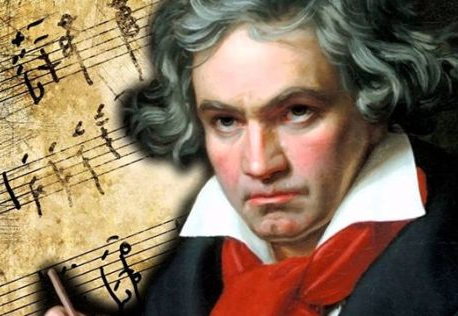
OR
International Mother Language Day
Ensure Fundamental Right to Education in Mother Tongue
Published On: February 21, 2023 08:30 AM NPT By: Randhir Chaudhary | @randhirJNK


Randhir Chaudhary
The author is a researcher associated with Peace Development and Research Centernews@myrepublica.com
At the global level, International Mother Language Day is being celebrated every year on 21st February to promote linguistic and cultural diversity as well as multilingualism. The United Nations Educational, Scientific, and Cultural Organization (UNESCO) authenticated this idea of celebrating Mother Tongue Day.
Similarly, lingual fanatics must understand that the imposition of one language on a society in the name of preserving a particular language is not possible. From the emergence of Bangladesh as an independent nation to the formation of several states inside India on linguistic basis have proven facts about the sensitivity of language.
On the day of taking oath as a member of the House of Representatives, there was a demonstration against Janamat Party (JP) President Dr CK Raut. It escalated to Janakpur and elsewhere and mostly stirred up Maithili language campaigners. Maithili activists had burnt Raut's effigy. A petition was also filed against the parliamentarians taking oath in the so-called Madheshi language. It is a serious matter that the members of the House of Representatives took oath in such a language which has not been listed officially in the concerned apparatus. This shows the gravity of lingual sensitivity which is a natural phenomenon in any lingually diverse state. Is it the first time languages become contentious? Why is this happening in Madhesh Province? Language is one of the cultural entities. It reflects the identity of the person. Within Madhesh, you can point out someone's district and class she/he belongs to. Many connoisseurs can recognize your caste with the language/dialect you speak.
Voices in the plain
The 2011 census shows that 123 languages are spoken as the mother tongue in the country. Among them, Maithili, Awadhi, Tharu, Bhojpuri and Bajjika are the most widely spoken languages in the Madhes Province. Maithili, which is spoken by 11.57 percent of the population, is the second largest language in Nepal. Similarly, Bhojpuri is spoken by 5.98 percent of the population, Tharu by 5.77 percent, Bajjika by 2.99 percent and Awadhi by 1.89 percent. Language is simply a means to convey a message to another in a comprehensible way.
The government has taken forward the work with mother tongue education to be implemented at the local level. In fact, in order to fully comply with the fundamental right to education in mother tongue guaranteed by Article 31(5) of the constitution, the local governments must be proactive and perform professionally. Ironically, no priority has been given to such a sensitive and essential issue. Let me plot a contradictory mindset of political leaders at the provincial level. In 2018, Lal Babu Raut took his oath in Hindi language. The first speaker of the province assembly Saroj Kumar Yadav had also vowed in Hindi. The same person (Saroj Yadav) later took oath for the chief minister of Madhesh Province in Bojpuri language. This may be claimed as personal lingual liberty, but it's politically immature and it is also inkling how sensitive the frontline leaders are! The scribe has respect for all the languages.
Talking about Hindi, it is the major lingua franca which has been connecting people from a linguistic perspective. Not only at the local level, but even political leaders whose mother tongue is Nepali speak Hindi when talking to people in the Tarai-Madhes. This is a common practice even though the 2011 census shows that only 0.47 percent of the Nepali people speak Hindi as a mother tongue.
Multiple official languages
As language is linked to an individual’s identity, people want their language to be spoken more. Meanwhile, in the context of Madhesh Province, no single language can be the sole language. Since the federal system is challenging in itself, the psychological ingredient should be kept at the center while implementing the system. Nepal’s constitution has opened the door for all languages to be preserved and used by broadening the jurisdiction of the province.
The government of Madhesh Province has recommended Maithili and Bhojpuri as official languages. After that recommendation, speakers of other languages like Magahi, Bajika also got disgruntled and demanded for those languages to be enlisted as the official language. Dialect is also as prestigious and preferable as a standard language. No one prefers his or her language to be called a variety of any other language. In this respect, the notion of dialect has a kind of sense of insult to different languages that people use across various social and regional contexts. Sociolinguistics is perceived as the variety of standard language that varies in terms of social and regional variables such as class, power, status, locality etc. Social variation in language use is mainly influenced by the social factors and dimensions such as status, power, gender and so on.
Give a look
At the global level, International Mother Language Day is being celebrated every year on 21st February to promote linguistic and cultural diversity as well as multilingualism. The United Nations Educational, Scientific, and Cultural Organization (UNESCO) authenticated this idea of celebrating Mother Tongue Day.
Similarly, lingual fanatics must understand that the imposition of one language on a society in the name of preserving a particular language is not possible. From the emergence of Bangladesh as an independent nation to the formation of several states inside India on linguistic basis have proven facts about the sensitivity of language.
Professor of comparative politics Adrian Guelke has written in his book entitled Politics in Deeply Divided Societies, “The adoption in 1992, under the auspices of the Council of Europe, of the European Charter for Regional or Minority Languages is an indication of the change that has taken place towards the status of local languages. Whereas the survival of Europe’s lesser known languages had previously been seen as an obstacle to national cohesion in the states in which they were spoken, their preservation is now viewed in a positive light, as enriching society’s cultural heritage.” At last, let’s hope the provincial government, the local government along with all the concerned bodies pay attention towards protection of the mother tongue.
You May Like This

Beethoven's musical language decoded using data science
Researchers have characterised the musical language of German composer and pianist Ludwig van Beethoven for the first time, applying statistical... Read More...

Curriculum in Gurung language under preparation
GORKHA, August 10: A process has begun to develop a school curriculum in the Gurung language – which has been... Read More...

Bhanu not confined to a particular geography and language: Indian Perz
DARJEELING, JULY 14: Chowrasta Chowk in Darjeeling echoed with Bhanubhakta Acharya's poetry and Nepal's national anthem throughout Tuesday. Most of... Read More...







Just In
- NRB to provide collateral-free loans to foreign employment seekers
- NEB to publish Grade 12 results next week
- Body handover begins; Relatives remain dissatisfied with insurance, compensation amount
- NC defers its plan to join Koshi govt
- NRB to review microfinance loan interest rate
- 134 dead in floods and landslides since onset of monsoon this year
- Mahakali Irrigation Project sees only 22 percent physical progress in 18 years
- Singapore now holds world's most powerful passport; Nepal stays at 98th











Leave A Comment